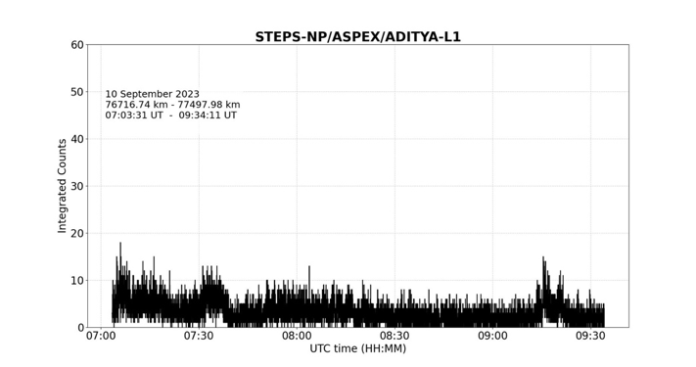[ad_1]
New Delhi: ISRO’s first sun mission, Aditya-L1 has commenced collecting scientific data as part of its mission, announced by India space research agency. The mission was launched on September 2 at 11:55 Am on the Polar Satellite Launch Vehicle (PSLV-C57) from Satish Dhawan space center, Sriharikota, Andhra Pradesh. Since then, the spacecraft has performed several manuevre in its trajector and is scheduled to leave the Earth orbit on Tuesday, September 19.
Meanwhile, the Supra Thermal & Energetic Particle Spectrometer (STEPS) instrument onboard the mission, as ISRO informed, has started measuring suprathermal and energetic ions and electrons at distances greater than 50,000 km from Earth.
ISRO provided the update regarding Aditya L-1 mission from its offical channel on X (formerly Twitter). It stated that the data is going to help scientists analyze the behaviour of particles surrounding Earth.
Aditya-L1 Mission:
Aditya-L1 has commenced collecting scientific data.The sensors of the STEPS instrument have begun measuring supra-thermal and energetic ions and electrons at distances greater than 50,000 km from Earth.
This data helps scientists analyze the behaviour of… pic.twitter.com/kkLXFoy3Ri
— ISRO (@isro) September 18, 2023
The Aditya-L1 mission, launched on September 2, aims to study the Sun’s photosphere, chromosphere, and corona. It will also investigate the dynamics of space weather and the propagation of particles and fields.
STEPS comprises six sensors, each observing in different directions and measuring supra-thermal and energetic ions ranging from 20 keV/nucleon to 5 MeV/nucleon, in addition to electrons exceeding 1 MeV.
These measurements are conducted using low and high-energy particle spectrometers. The data collected during Earth’s orbits helps scientists to analyse the behaviour of particles surrounding the Earth, especially in the presence of the magnetic field of Earth.
STEPS was developed by the Physical Research Laboratory (PRL) with support from the Space Application Centre (SAC) in Ahmedabad.
[ad_2]

